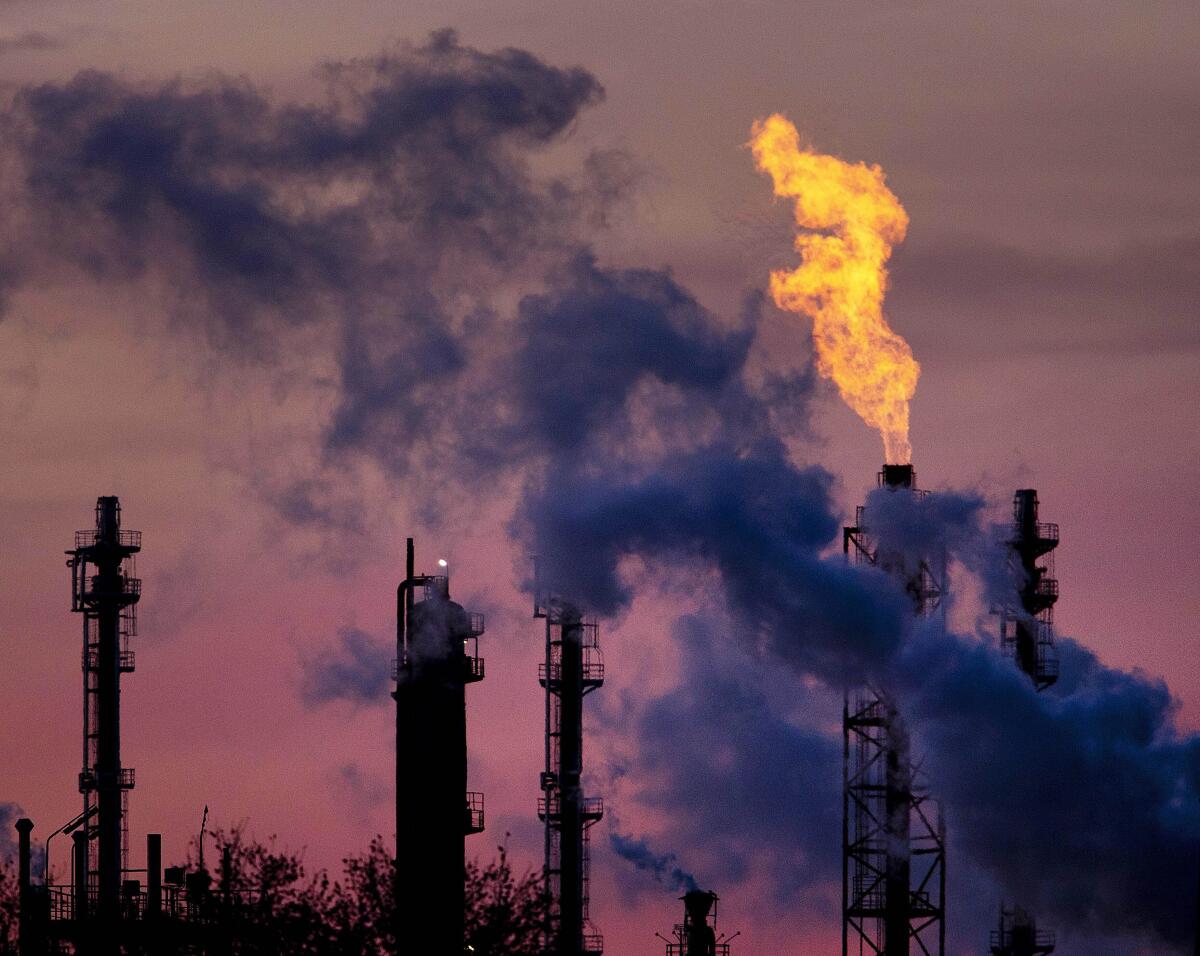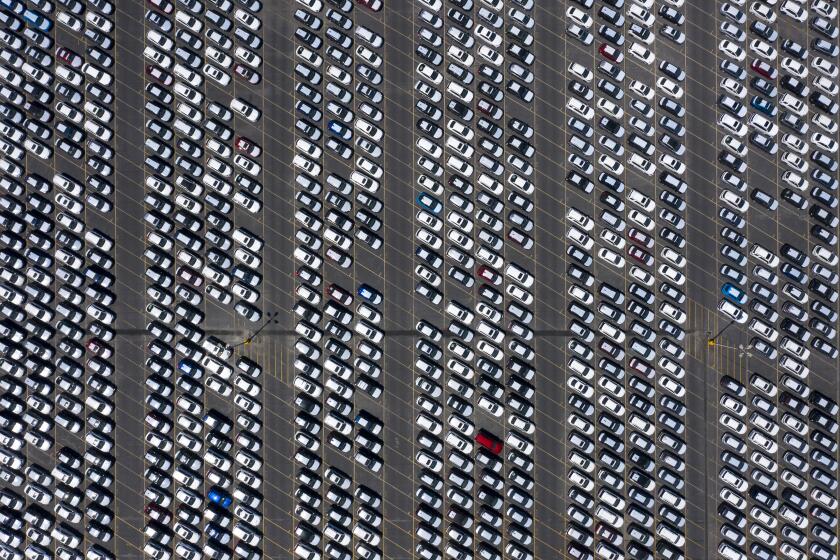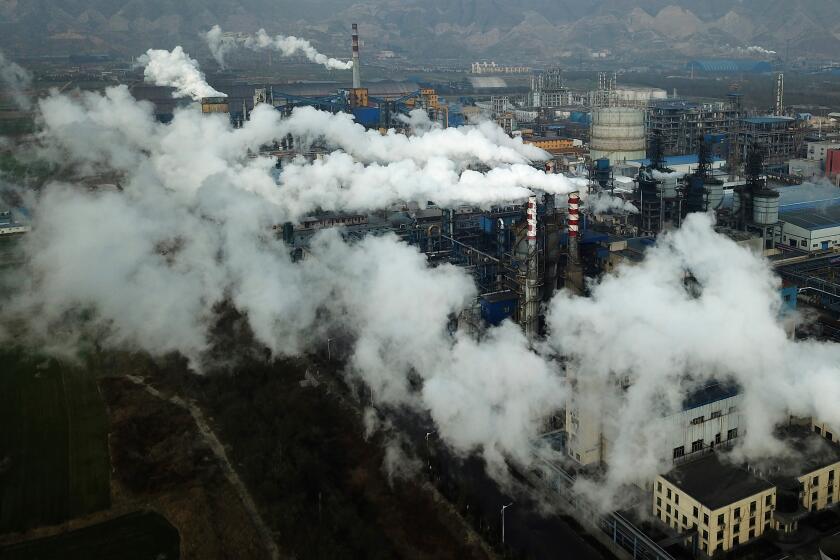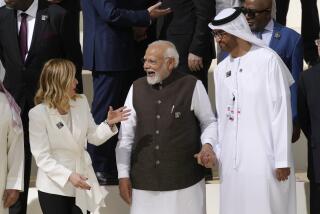New pledges by U.S., others put Paris climate accord goals in closer reach, scientists say

BERLIN — Recent pledges by the United States and other nations could help cap global warming at 2 degrees Celsius (3.6 degrees Fahrenheit) by the end of the century, but only if efforts to cut greenhouse gas emissions to “net zero” by 2050 succeed, scientists said Tuesday.
More than 190 countries agreed six years ago in Paris to keep the average temperature rise below that threshold — ideally no more than 1.5 degrees Celsius (2.7 degrees Fahrenheit) above pre-industrial levels — by 2100 to avoid serious harm to humans and the natural world.
The Climate Action Tracker, compiled by a group of researchers who translate targets and actual emissions into temperature estimates, projects that the world is currently set to overshoot the Paris accord’s less ambitious 2-degree goal by 0.9 degrees.
Such a rise represents “catastrophic climate change, a situation that is basically not controllable and which we have to avoid by all means,” said Niklas Hoehne of the NewClimate Institute, one of the authors of the study.
But after incorporating the latest proposals from governments, researchers estimate the rise could level off at 2.4 degrees Celsius. President Biden’s recent ambitious new climate goals contributed significantly to the revised estimate, along with pledges by the European Union, China, Japan and Britain.
If 131 countries that account for almost three-quarters of global emissions also meet their pledged or discussed “net zero” goal, then the 2-degree target on temperature rise could be met, said Hoehne. This would require further pledges, though, that would essentially halve global emissions in the next 10 years.
The updated estimate was released ahead of a virtual meeting this week hosted by Germany to discuss further international efforts to curb global warming.
President Biden declared a goal of reducing U,S. carbon emissions by half in less than nine years. That will be tough, but it is vitally necessary.
Germany’s environment minister said the Petersberg Climate Dialogue, which brings together representatives from about 40 nations, would focus on resolving several technical issues in the run-up to this year’s United Nations summit in Glasgow in November.
Svenja Schulze said more aid to help poor countries prevent and adjust to climate change would also be discussed. Rich countries have failed to provide the $100 billion dollars a year they agreed to by 2020, much to the anger of developing nations.
The meeting is one of the last opportunities for German Chancellor Angela Merkel to leave her mark on international climate policy. The longtime leader, who isn’t running again in Germany’s upcoming national election, has faced criticism for failing to push through tough emissions cuts domestically during her four terms in office.
“She has to share the responsibility for the severe lack of vision in pivotal fields such as transportation and agriculture,” said Jennifer Morgan, the executive director of Greenpeace International.
China, Japan and South Korea are the biggest funders of coal-fired power plants worldwide. Persuading them to stop will be a major challenge.
Morgan said a ruling by Germany’s top court last week ordering the government to set clearer goals for emissions reductions after 2030 could help spur Berlin into more aggressive action in the coming months, such as a pledge to slash emissions by 70% rather than just 55% over the next decade.
Such a move by Europe’s biggest economy would be in line with calls for countries to redouble their efforts to achieve the more ambitious 1.5-degree target set in the Paris accord.
Climate scientist Hoehne said capping global warming at that level would require a major effort on all fronts, given that average temperatures are already 1.2 degrees higher today than they were before industrialization.
“It is physically achievable? Yes, by all means,” he said, adding that the world also has the technical means of doing so.
“The big problem is whether it’s politically doable. And there I’m more hopeful now than ever before.”
More to Read
Sign up for Essential California
The most important California stories and recommendations in your inbox every morning.
You may occasionally receive promotional content from the Los Angeles Times.












